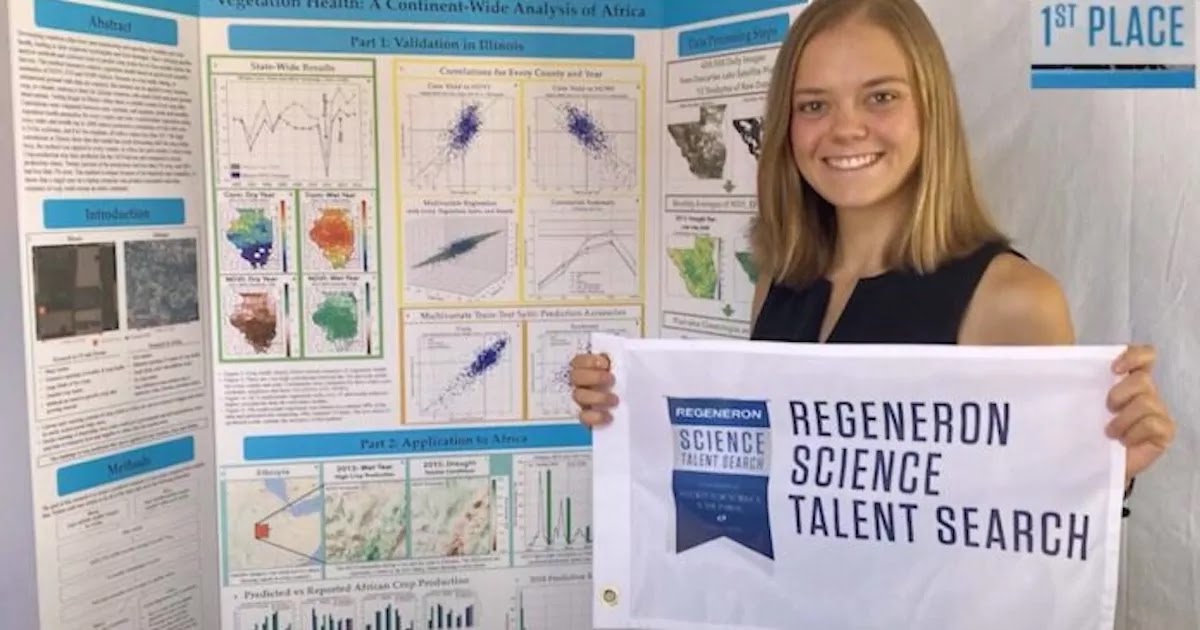
A 17-year-old student from a high school in New Mexico has won $250,000 after inventing a tool that could help stop famines. Lillian Kay Petersen, of Los Alamos, New Mexico, was awarded the top prize in the Regeneron Science Talent Search Competition (formerly the Westinghouse Science Talent Search) which has been running for 78 years.
The prestigious nationwide STEM competition awarded 10 prizes totalling $1.8 million, with Lillian taking first place. Her invention is a simple tool that predicts harvests early in the growing season using daily satellite imagery and crop data. This data can then be used to help farmers best organise for when harvest arrives, and to counter any difficulties they may face. The empirical strength of her invention was verified when it accurately predicted harvest yields in Africa last year.
It is hoped that the tool could now be used in those places experiencing famine or are prone to famine to save lives in the future.
Lillian says she was inspired by her parents who adopted children from food-insecure parts of the world and reading about the global affects of famine on some of the world's poorest people. While the world already produces more than enough food for everyone almost 1 billion people go hungry, most of whom live in Asia.

Other prizes in the competition were handed out to Jagdeep Bhatia, 18, of Green Brook, New Jersey, who developed learning algorithm software, which could be used to train AI robots in the future, and Brendan Crotty, 18, of Muskogee, Oklahoma, who was awarded for the invention of a fuel-efficient hybrid gas burner.
Maya Ajmera, President of the Society for Science & the Public, which oversees the contest, spoke of her admiration for Lillian and the other contestants. She said:
"Students like Lillian Petersen are the stewards of our future. The current pandemic has made it clear how important science is to our wellbeing. With these finalists at the forefront of scientific and engineering discovery, I know we are in good hands. They will be solving the world's most intractable problems."













COMMENTS